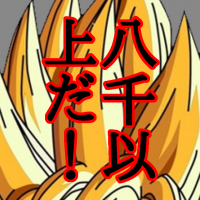Mensagens: 3
Idioma: English
Leisureguy (Mostrar o perfil) 14 de maio de 2020 14:02:53
I got to thinking about maŝino — machine — and wondering whether maŝini is the appropriate Esperanto word for "to machine" (tr) as when one machines a metal part using (say) a metal lathe. And is the person who does that a maŝinisto?
I know that in English a person who works on machines is not a machinist but a mechanic. Esperanto has mekaniko for mechanics and thus mekanikisto is a mechanic. Mechanics is also a branch of physics, but the specialist in mechanics (in physics) would be fizikisto, of course. Mekanikisto would be the trade or the practice use of mekanikaj devices, I presume.
But I'm wondering about machining metal: does Li maŝinas la parton make sense? Is the person doing that a maŝinisto, or is a maŝinisto one who works on maŝinoj?
I know that in English a person who works on machines is not a machinist but a mechanic. Esperanto has mekaniko for mechanics and thus mekanikisto is a mechanic. Mechanics is also a branch of physics, but the specialist in mechanics (in physics) would be fizikisto, of course. Mekanikisto would be the trade or the practice use of mekanikaj devices, I presume.
But I'm wondering about machining metal: does Li maŝinas la parton make sense? Is the person doing that a maŝinisto, or is a maŝinisto one who works on maŝinoj?
nornen (Mostrar o perfil) 14 de maio de 2020 14:50:10
When you are talking about lathes in specific, I think the correct words would be torni, tornilo or tornmasxino and tornisto. In my understanding all tornistoj are masxinistoj.
For a more general term, maybe masxine labori/produkti/formi could do the trick. Or at a moment, when nobody is looking, you just coin the word masxinumi and run with it.
In my understanding a masxinisto operates machines and gives day to day maintenance, while a mehxanikisto is called when the machine breaks down and you have to dismantle it in order to fix it or in order to foul it up completely.
For a more general term, maybe masxine labori/produkti/formi could do the trick. Or at a moment, when nobody is looking, you just coin the word masxinumi and run with it.
In my understanding a masxinisto operates machines and gives day to day maintenance, while a mehxanikisto is called when the machine breaks down and you have to dismantle it in order to fix it or in order to foul it up completely.
sergejm (Mostrar o perfil) 14 de maio de 2020 16:41:18
maŝinisto is any worker using a machine,
maŝinestro is a chief of such workers.
maŝinizi is use more machines
maŝinestro is a chief of such workers.
maŝinizi is use more machines


